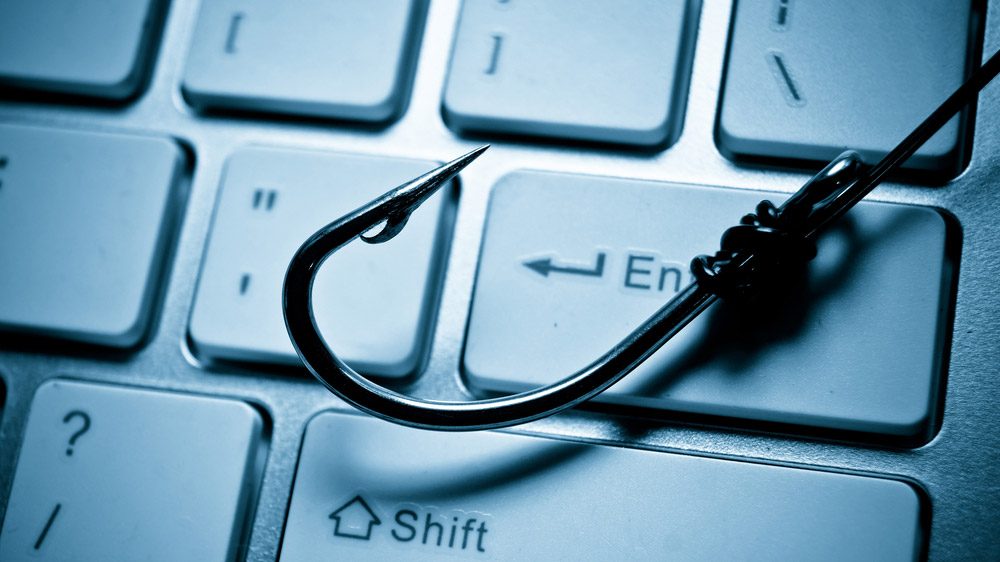
It's the end of the summer, and that means going back to school. While you're prepping for the coming academic year, you should consider adding getting extra cybersecurity tools, like one of the best VPNs, to your to-do list for the coming semester.
As a young adult, you're far more frequently targeted by and more likely to fall prey to cyber scams, so it's important to stay on your guard when online to avoid having your money, data, or identity stolen.
This is why it's important to understand the hallmarks of online scams, so you can browse safely and avoid hackers. Here, we explore the dos and don'ts of online safety to put you in the best position to keep safe online.
Beware of public Wi-Fi
As a student, the likelihood is that you'll be using a public Wi-Fi, whether this is in coffee shops, in bars or anywhere else it's offered. However, you should know that not all public Wi-Fi is safe to use, and can actually be a set-up by a hacker to steal your data.
Hackers often exploit vulnerabilities in public Wi-Fi networks to harvest personal data from anyone who connects to them. For example, if a hacker sets up a Wi-Fi network with no password called "NYU Library Wi-Fi" and you connect to it, they'll be able to see everything you're doing online.
These are called man-in-the-middle attacks, and while they can be difficult to spot, they can be easily guarded against just by using one of the best VPN services.
This is because a VPN creates an encrypted tunnel between your device and the internet, making it impossible for hackers to pry on your data. You might think this comes at a cost, but thankfully the best cheap VPNs, and even the best free VPNs, can protect you against these attacks.
With a VPN active, even if you do connect to a malicious network, its encryption will make sure the hacker won't be able to collect any of your information.
Watch out for phishing scams

With the start of the academic year on the horizon, you're likely already being inundated with emails, from "Welcome Back" newsletters to back-to-school offers from retailers.
However, even seemingly innocuous emails can contain dangerous phishing links. The aim of these emails are to get you to reveal personal and/or sensitive information, and they do so using social engineering.
Social engineering uses psychological tactics to instill a sense of anxiety or urgency in you, in order to get you to act without thinking.
During a time when you're likely handing over a decent amount of personal information to your college in order to get everything ready for your school year, it's important to be on your guard for any hacker-written emails that may try to take advantage of this.
Here's a quick rundown of what to watch out for and how to protect yourself from phishing attacks.
- Look out for mispelled email domains (e.g. C0lumbia vs Columbia), as this is likely hackers trying to trick you into thinking the email is legitimate.
- Never click on a link or download files from an unknown email that you weren't expecting to receive.
- Check the email copy for typos. While this is becoming a less common phishing email tell due to the rise of generative AI-made phishing scams, if the email copy has errors or is writing in a different manner than you're used to, stay on your guard.
- Hover over links. If the link appears to be redirecting to an unexpected or suspicious domain, then avoid it.
- Watch out for text messages pretending to be your college or your student loan lender. Double-check the number to see if it is a number you have recieved messages from before, or if it's a generic mobile number, although be aware that official numbers can be spoofed by hackers to make them seem more legitimates. Check in with faculty n personor contact your student loan lender directly if you're in doubt.
- Consider whether the message is trying to instill a sense of urgency. Phishing messages will urge you to do things right this instant with threats of time running out or dire consequences if you don't respond immediately. While this can be scary, it's important to take time to really look at what is being said and if it is legitimate.
- Consider using one of the most secure VPNs. The likes of Surfshark and NordVPN come with antivirus-style software that can automatically detect and flag suspicious links and URLs.
- Install the best antivirus software or check out some free link and malware checkers – like the ones on the NordVPN website. This will help protect you if you do click on a link, or will help you vet links before you click on them.
Use strong passwords
While reusing simple passwords for all your accounts definitely seems easier, it's actually a lot worse for your cybersecurity in the long run.
For example, if one of your passwords gets revealed in a data leak, a hacker could then access any account you use the same email and password for. Depending on what accounts you share passwords between, this could be devastating and give the hackers access to your social media accounts, online banking, file storage and more.
This is why it's so important to use strong, unique passwords for all of your accounts. In the past, this used to require remembering multiple different passwords, but now with the rise in built-in password managers for phones and browsers, it's easier than ever to generate and store secure passwords.
You should also consider enabling two-factor authentication (2FA) wherever possible. By doing this, you add an extra layer of security to all your accounts, as well as getting an alert if anyone other than you tries to access your account.
Avoid deals that are too good to be true
Given the limited budget students have, it's understandable that you'll be looking for the best deals. However, some of these deals are scams designed to get your money or personal details, providing nothing in return.
For example, if you're bargain hunting and come across a site offering an item at a drastically lower price than any other site you've seen, don't jump at the chance to get your hands on it. Instead, consider why this site is offering such a lower price when nowhere else is.
The same goes for if you're on the hunt for cheap or free resources, like textbooks or resources for class. Cybercriminals could hide malware within the download or use bogus links.
Use these tips in order to tell whether or not a site is legitimate:
- Checking the website's URL. Many fake websites will use URLs very similar to legitimate site's, but there will be spelling errors, e.g. swapping out 'O' for '0'. Additionally, check to see if the URL itself starts with 'https://' as this is a good sign a site is real.
- Look up the deal on social media. If a brand is putting on a massive discount, chances are they will have posted about it somewhere. If there are no posts about it, it's probably a scam.
- Check the domain extension. Legitimate websites will have domain extensions you recognise, like '.com'. If a website uses an usual domain extension this is a sign its a scam.
- Use a link checker. By using a link checker, you can quickly and easily see if the domain is related to malware.
Overall, it's better to be safe than sorry. It's not worth losing money and having your data stolen for the small chance of getting a bargain.
We test and review VPN services in the context of legal recreational uses. For example: 1. Accessing a service from another country (subject to the terms and conditions of that service). 2. Protecting your online security and strengthening your online privacy when abroad. We do not support or condone the illegal or malicious use of VPN services. Consuming pirated content that is paid-for is neither endorsed nor approved by Future Publishing.







